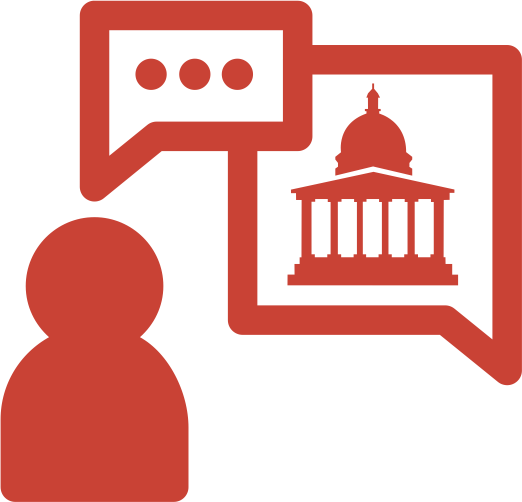Leadership in students is something that will help shape a student's future. Young learners need to have leadership skills. Specific strategies are implemented, and programs are conducted to empower and foster their leadership skills. Several educational institutions provide a variety of initiatives that encourage student leadership, which includes classes where students are taught how to work on their social skills like communication, teamwork, and making decisions. Some international schools in Mumbai set up a committee for the student council and let them express their concerns and opinions, which can influence the school policies and programs.
What Is Student Leadership?
This occurs when the students are active in their responsibilities and play a significant role within their school or community. It helps bring positive change in them. Leadership in students can be found in a variety of roles, such as running clubs representing fellow students, being on a student council, organizing events, or just acting as role models for their fellow students. It is about learning leadership skills that will help you communicate with your team and make effective decisions. A leader is someone who creates a positive impact just by influencing their coworkers. The overall goal is to help young people understand their potential and acquire valuable skills to contribute to essential contributions that will help create a more favourable environment for a better future.
Why Are Leadership Activities for Students Important?
Leadership is not merely a title but a vital talent that enables someone to take the reins and steer a team. Accordingly, it is a standard procedure that students learn the most basic skills like problem-solving, critical thinking, writing, and even collaboration as they go through the systematic educational experience. It is helpful in sensitizing the youth's self-determination and good work habits. It will help build confidence in them. Students who have self-esteem and such essential skills tend to make an impression. This quality will help the student prepare for future challenges.
Initiatives to empower student leadership
- Creating a supportive environment for student leadership:
- Leadership development programs:
- Students-led initiatives and projects:
- Collaboration with external organizations:
Teachers play a crucial role in modelling the students and helping them develop leadership behaviour. They provide the students with proper mentorship and guidance that moulds them. The student should have a supportive environment that encourages leadership. It includes respect for diverse perspectives, proper open communication, and collaboration among students.
The International Schools in Mumbai provide various leadership development programs that are tailored to meet the student's interests. They offer multiple opportunities to develop their skills through practical experiences, workshops, and seminars. For example, some schools organize student councils. This is a council of students that helps in the critical decision-making process and organizes school events. In addition, they also arrange competitions, conferences and leadership camps. They also provide a platform for them to showcase their abilities and learn from their fellow peers.
They conduct various student-led initiatives and projects in order to encourage them to take ownership of their learning. This way, they can also contribute to their school's community. Some of the other initiatives include organizing charity drives, cultural events, environmental campaigns, and community service projects. By managing all these events and taking charge of them, they learn practical skills such as teamwork, communication, and project management and develop an understanding of how to approach a problem. At the same time, it is also doing something positive for society.
Collaborating with external organizations such as businesses, NGOs or community groups helps provide opportunities to engage in real-world leadership experiences. It also helps them interact with professionals and get an understanding of how it works in the real world. It will also help them participate in internships and contribute to social courses. This type of collaboration can broaden the perspective of the student and develop a strong sense of social responsibility.
Success stories: Examples of student leadership
- Events like organizing charity and implementing awareness or fundraising for local charities help develop a sense of leadership and organization handling capabilities in the student.
- The students take environmentally friendly initiatives, such as community cleanups, recycling programs, and school garden projects, to encourage sustainability in the environment.
- They established pure support programs to raise awareness of mental health inclusion. These programs help kindness and compassion within their school community.
- Students who are selected for a leadership position in their school are more confident speakers. Their duties are to maintain discipline and lead school events. These leadership roles help them be confident and encourage and motivate them to become the best version of themselves.
What makes a good student leader?
- Leadership in students is not just about putting up a facade that makes one scene worthy. It is about being a leader who knows how to lead their group. It is essential to be trustworthy so that you can lead your team with honesty.
- It is essential to be open to criticism and be open to receiving feedback. Keeping an open mind helps create a positive, comfortable environment for others and helps them share their ideas openly.
- No one likes to admit fault, but not admitting fault, even when you know you are in the wrong, is not a leadership quality. Knowing when to accept your mistake and take responsibility is necessary for understanding and learning from one's mistakes.
The student leadership programme will help guide them in their personal growth and aim to accomplish these principles, which will make them better leaders.
Conclusion
Empowering student leadership, equipping them with practical leadership skills, and developing a solid mindset are necessary for an individual to thrive in the future. Educational institutions promote leadership in students by providing student-led initiatives and offering leadership development programs. By learning all these skills, students are better prepared to face the challenges of an ever-changing world and make meaningful contributions to their community.

 Online Admission
Online Admission Scholarship Programme
Scholarship Programme University Counselling
University Counselling Leadership
Leadership Voices at ABWA
Voices at ABWA